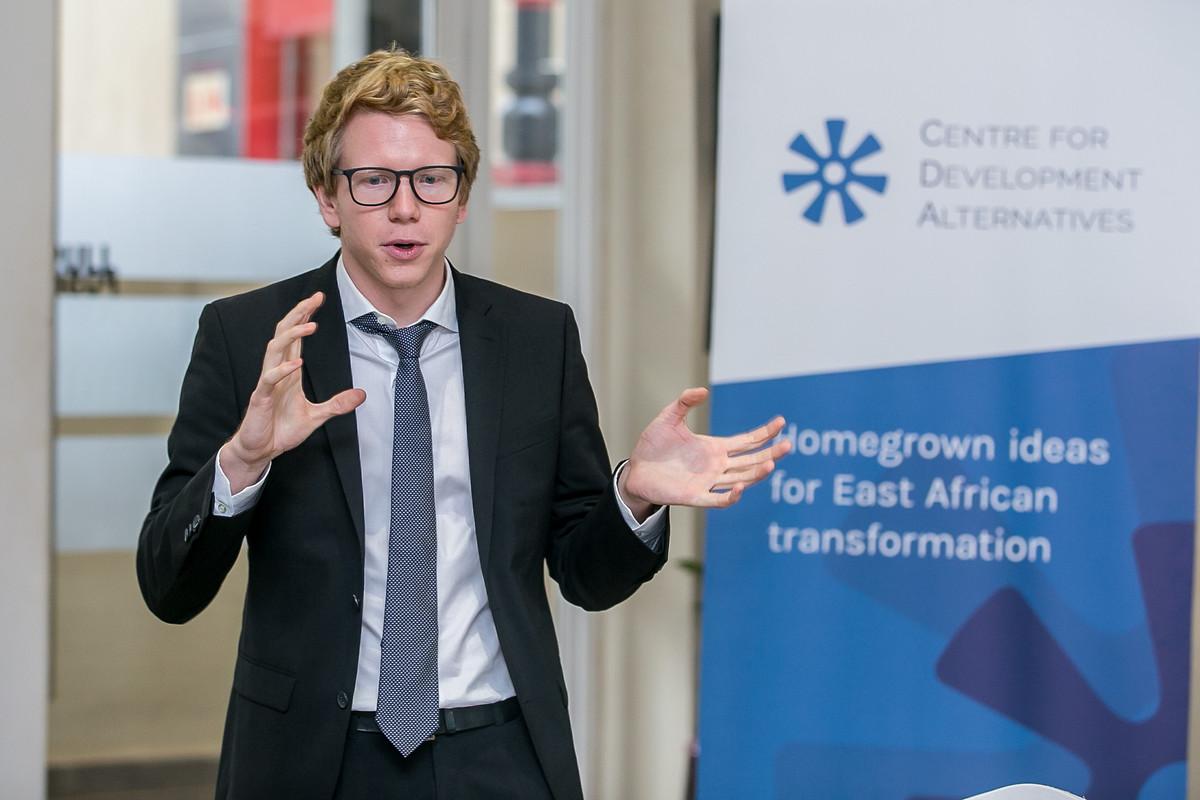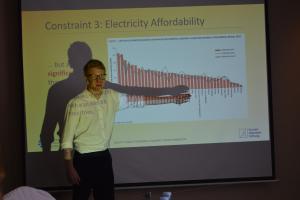Veranstaltungsberichte
Walter presented the results of the study “Powering Uganda’s Transformation”, which was undertaken by CDA in partnership with The Konrad Adenauer Stiftung (KAS) and published as the latest contribution of the publication series “Reality Check”. The study examined what role the energy sector should play in transforming Uganda into a industrialized middle income country. In its result, the study identified energy as a main shaper for the Ugandan economy but also named obstacles that are currently constraining a structural transformation.
“Electricity is only 1,6% of Uganda‘s energy consumption, biomass on the other hand is more than 85%. Because the sector is neither organized nor equipped with appropriate machineries and biomass is mainly consumed by households and small business entrepreneurs, the use of biomass today is not efficient. By burning firewood and charcoal, a lot of energy gets lost. By this, Uganda is over relying on its forests. On the long run, we need to either replant forests, or shift to other sources of energy.“ said Walter.
Next to an inefficient use of biomass the study implies furthermore, that the condition for increased productivity is an equal access to reliable and affordable electricity. “We need a distribution network to bring the electricity to the consumers. That means losses and technical difficulties. But the more electricity spreads, the more consumers there will be. This will eventually bring the prices down. So Uganda needs to invest in transmission systems to have economic growth in the long run.”
But Walter also pointed out the dilemma’s that come with making electricity accessible: “We need cheap power to push industrialization, but we need industrialization to generate cheap power.” There are still many adjustments to be made to structurally transform Uganda’s economy, but the publication identifies main constraints and offers possible solutions.





